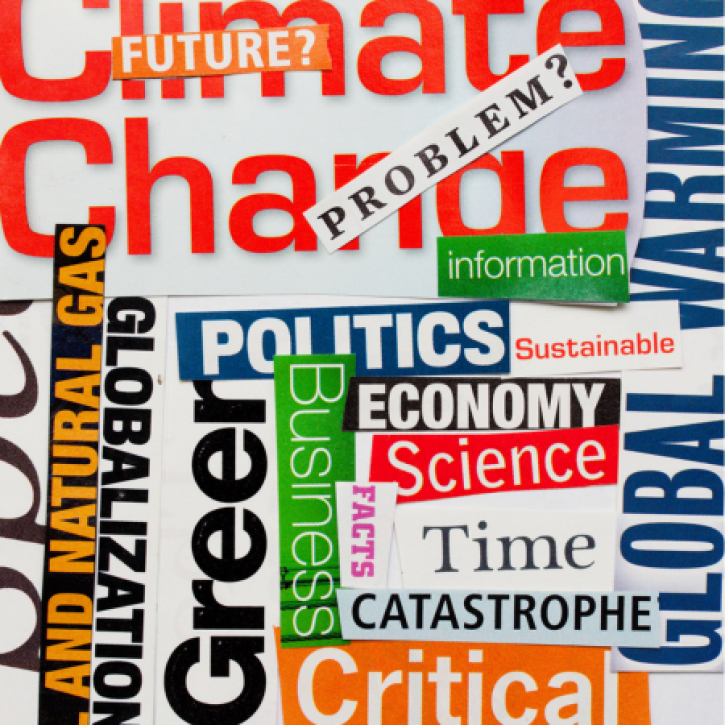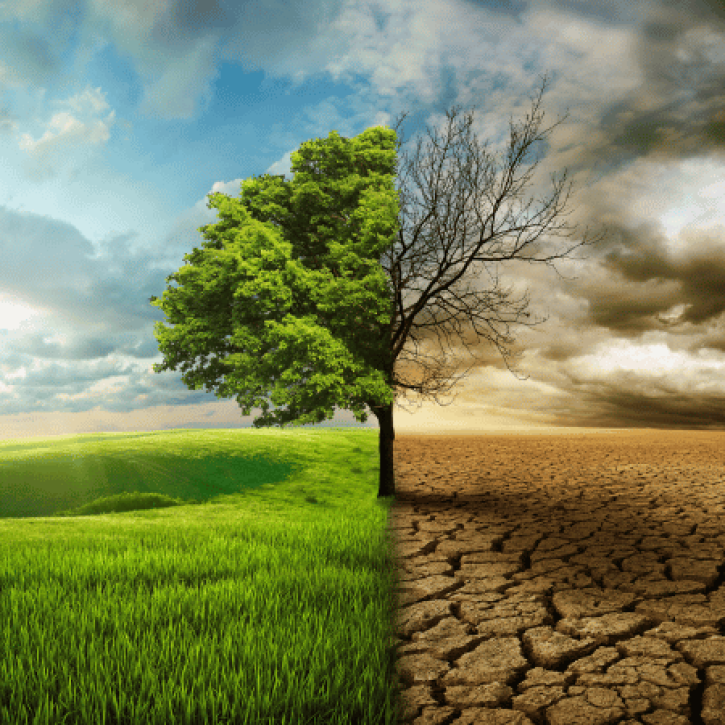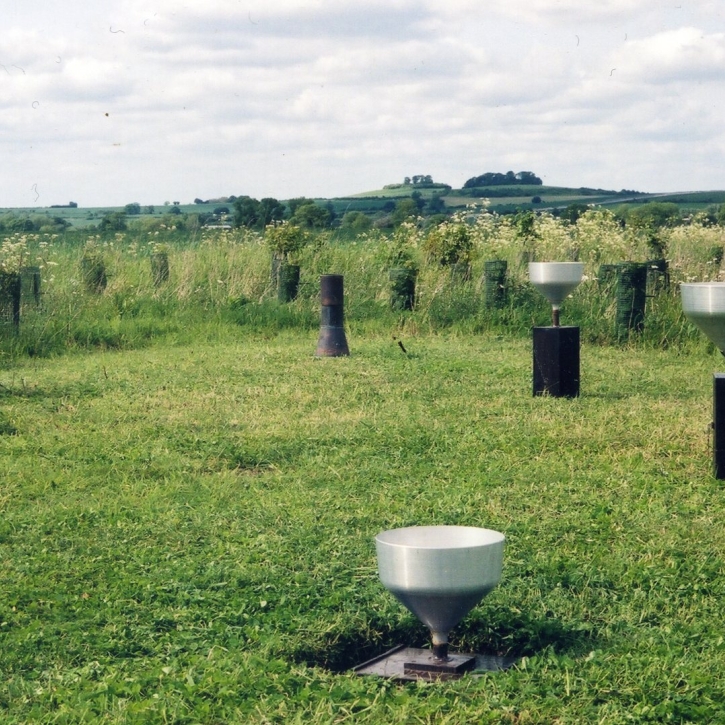

Atmospheric Science Conference 2019
LOCATION
Edgbaston
Birmingham
West Midlands
B15 2TT
United Kingdom
The National Centre for Atmospheric Science and the Royal Meteorological Society are jointly hosting the 2-day UK Atmospheric Science Conference in Birmingham on 2-3 July 2019. The meeting will provide a unique opportunity to bring together atmospheric scientists with interests in weather, climate and atmospheric chemistry to present latest research findings.
https://www.atmosphericscienceconference.uk/
Conference Presentations
Keynote Address Re-Examining the perplexity of Cyclone Complexity - Helen Dacre, University of Reading
9:40 An Overview of Atmospheric Pollution and Human Health in Chinese Megacity Research Programme (APHH-Beijing) - Dr Zongbo Shi, University of Birmingham
10:00 Seasonal Forecasts of the 20th Century - Dr Antje Weisheimer, University of Oxford
10:20 First Results from the UKESM1 CMIP6 ScenarioMIP Ensemble of Future Projections - Dr Alistair Sellar, Met Office
Seasonal Predictions - Room C Block
11:10 Development, Amplification and Decay of European Summer Weather Patterns Linked to Spring North Atlantic Sea Surface Temperatures - Dr Albert Osso, NCAS
11:30 The Utility of Seasonal Forecast Information for Drought Risk Assessments - Dr Matthew Young, University of Reading & NCAS
11:50 An Improved Approach to Land-Surface Initialisation in the Met Office Global Seasonal Forecasting System (GloSea) - Philip Davies, Met Office
12:10 Volcanic Impacts on Large-Scale Climate Modes in a Multi-Model Ensemble - Dr Leon Hermanson, Met Office
Dynamics - Room WG5
11:10 Structure, Lifecycle and Environmental Conditions of Tibetan Plateau Vortices - Dr Julia Curio, University of Reading & NCAS
11:30 ENSO Modulation of MJO Teleconnection to the North Atlantic & Europe and Implications for Subseasonal Predictability - Dr Robert Lee, University of Reading & NCAS
11:50 The Study of Topographic Changes of the Middle Levels of the Atmosphere and its Effect on the Heat Increase in the Middle East - Prof Nader Parvin, Payame Noor University
12:10 Equatorial Waves and High Impact Weather in South East Asia - Dr Sam Ferrett, University of Reading & NCAS
Interactions - Room G33
11:10 Managing Air for Green Inner Cities - Dr Paul Hayden, University of Surrey & NCAS
11:30 On the Influence of Pre- and In-Seasonal Meteorological Conditions on Grass Pollen Interannual Variations in the UK - Dr Alexander Kurganskiy, University of Worcester
11:50 Atmospheric Boundary Layer, Atmospheric Stagnation and Air Pollution Relationships Over the Atacama Desert, Chile - Damián Oyarzun, Enviromental Change Research Centre, UCL
12:10 An Extension of the Online Atmospheric Model WRF-Chem with Bioaerosols at the Species Level - Prof Carsten Skjoth, University of Worcester
Earth System Modelling - Room WG12
11:10 UKESM1: An Assessment of the Pre-Industrial to Present-Day Anthropogenic Forcing and its Attribution to Different Forcing Agents - Dr Fiona O'Connor, Met Office Hadley Centre
11:30 UKESM-Hybrid: Focusing Resolution Where it's Most Needed - Dr Marc Stringer, University of Reading & NCAS
11:50 An Analysis of the UKESM1 CMIP6 Historical Ensemble - Dr Till Kuhlbrodt, University of Reading & NCAS
12:10 Coupled Interactive Fire-Atmospheric Chemistry Model - João Teixeira, Met Office & University of Exeter
Seasonal Predictions - Room C Block
13:30 The Impact of Strong El Nino and La Nina Events on the North Atlantic - Dr Steve Hadiman, Met Office Hadley Centre
13:50 Understanding the Signal-to-Noise Paradox with Nonlinear Dynamics - Prof Tim Palmer, University of Oxford
14:10 Attribution of 2012 Extreme Climate Events: Does air-sea interaction matter? - Dr Buwen Dong, NCAS-Climate, University of Reading
Aerosols - Room WG5
13:30 The Influence of VOC Mixing on the Formation and Properties of Secondary Organic Aerosols - Dr M. Rami Alfarra, The University of Manchester & NCAS
13:50 Observations Of Highly Oxygenated Molecules and New Particle Formation In Urban Atmospheres - James Brean, University of Birmingham
14:10 Air Pollutant Removal by Vegetation: Potential and Limitations - Dr Eiko Nemitz, Centre for Ecology and Hydrology
Ozone & Climate - Room G33
13:30 Modelling the Impacts of Ongoing East Asian CFC Emissions on Ozone Recovery - Dr James Keeble, NCAS
13:50 Towards Improved Characterisation of the Impact of Chlorinated VSLSs on Atmospheric Chemistry and Climate - Dr Ewa Bednarz, Lancaster University
14:10 Machine Learning Parameterizations for Ozone in Climate Sensitivity Simulations - Dr Peer Nowack, Imperial College London
Regional - Room WG12
13:30 Interaction of Convective Organisation with Monsoon Precipitation, Atmosphere, Surface and Sea: Emerging results from the 2016 INCOMPASS field campaign in India - Dr Andy Turner, University of Reading & NCAS
13:50 Airmass Analysis of the Processes Driving the Progression of the 2016 Indian Summer Monsoon - Dr Ambrogio Volonté, NCAS - Climate & University of Reading
14:10 Transport Resilience to Weather in Rio de Janeiro, Brazil - Dr Emma Ferranti, University of Birmingham
Keynote Address UK Emissions from Novel Sources, Prof Frank Kelly, King's College London
16:30 Potential Benefits of Cool Roofs in Reducing Heat-Related Mortality During Heatwaves in a European City, Dr Helen L Macintyre, Public Health England & University of Birmingham
16:50 Increased Shear in the North Atlantic Upper-Level Jet Stream over the Past Four Decades - Prof Paul D. Williams, University of Reading
17:10 Simulating the Climate Response to Atmospheric Oxygen Variability in the Phanerozoic - Dr Alexander T. Archibald, University of Cambridge & NCAS/Met Office
Keynote Address Global Intensification in Observed Short-Duration Rainfall Extremes - Prof Hayley Fowler, Newcastle University
9:35 Isoprene Measurements in an Oak-Dominated Forest during the 2018 Heatwave in the UK - Dr Valerio Ferracci, Cranfield University
9:55 Measurement and Modelling of Physico-Chemical Properties and Atmospheric Behaviour of Automotive Diesel Particles - Prof Roy Harrison, NCAS, University of Birmingham, UK and King Abdulaziz University, Saudi Arabia
10:15 Unsupervised Classification of Convective Organisation with Deep Learning - Dr Leif Denby, University of Leeds
Urban and Regional Air Quality - Room WG5
Climate Services - Room G33
Machine Learning in Earth Sciences - Room WG12
Facilitators talks:
Peer Nowack
Convolutional networks, Leif Denby
Machine Learning in Earth System Science: An overview of meteorological normalisation, Stuart Grange
Convection & Storms - Room C Block
14:10 Covariance of Storm Hazards in the Atlantic Basin - Dr Michael Angus, University of Birmingham
14:30 High-Resolution Weather Research and Forecasting (WRF) Simulations of Ice Crystal Icing Events and the Risk to Aircraft - Dr Daniel Bannister, SATAVIA
14:50 Slope-Driven Convection: Present Understanding, Open Questions, and Challenges for Numerical Weather Prediction Models, Prof. Dino Zardi, Atmospheric Physics Group, University of Trento
Atmospheric Chemistry - Room WG5
14:10 Measurements from the Manchester Time of Flight Chemical Ionisation Mass Spectrometer on the FAAM Bae 146 Research aircraft, Dr Thomas Bannan, University of Manchester
14:30 Analysis of tropospheric NO2, HCHO, HONO and O3 from three years of remote and urban MAX-DOAS measurements in Australasia, Robert Ryan, University of Melbourne
14:50 Ammonia in the 21st Century: Challenges for Measurements and Mitigation, Dr Christine Braban, Centre for Ecology & Hydrology
Africa - Room G33
14:10 Validation of TAMSAT-Derived Soil Moisture using NDVI, Dr Vicky Boult, University of Reading
14:30 Regional Mechanisms for the “East African Paradox” Rainfall Decline and Recent Recovery, Dr Caroline Wainwright, University of Reading
14:50 Are future precipitation changes homogeneous over Sahel? - Dr Paul-Arthur Monerie, University of Reading
Climate Variability - Room WG12
14:10 Assessing External and Internal Sources of Atlantic Multidecadal Variability using Models, Proxy Data and Early Instrumental Indices, Dr Christopher O'Reilly, Atmospheric, Oceanic & Planetary Physics, University of Oxford
14:30 Quantifying the Effect of Asian Circulation Biases on the Climate Response to Aerosol Forcing, Dr Laura Wilcox, University of Reading & NCAS
14:50 Reconstruction of the Southern Annular Mode from Ships’ Logbooks and other Historical Observations, Dr Julie Jones, University of Sheffield
15:10 Examining the Role of Aerosol Forcing in Driving Global Climate Variations using a Novel Large Ensemble of Historical Simulations, Dr Andrea Dittus, University of Reading & NCAS
16:00 Long Range Predictability of Atmospheric Angular Momentum, Prof Adam Scaife, Met Office Hadley Centre & University of Exeter
16:20 State of the UK Climate 2018, Michael Kendon, Met Office & National Climate Information Centre
Keynote Address, Climate Science Needs to Take Risk Assessments Much More Seriously, Prof Rowan Sutton, NCAS & University of Reading
The National Centre for Atmospheric Science and the Royal Meteorological Society are jointly hosting the 2-day UK Atmospheric Science Conference in Birmingham on 2-3 July 2019. The meeting will provide a unique opportunity to bring together atmospheric scientists with interests in weather, climate and atmospheric chemistry to present latest research findings.
https://www.atmosphericscienceconference.uk/
Conference Presentations
Keynote Address Re-Examining the perplexity of Cyclone Complexity - Helen Dacre, University of Reading
9:40 An Overview of Atmospheric Pollution and Human Health in Chinese Megacity Research Programme (APHH-Beijing) - Dr Zongbo Shi, University of Birmingham
10:00 Seasonal Forecasts of the 20th Century - Dr Antje Weisheimer, University of Oxford
10:20 First Results from the UKESM1 CMIP6 ScenarioMIP Ensemble of Future Projections - Dr Alistair Sellar, Met Office
Seasonal Predictions - Room C Block
11:10 Development, Amplification and Decay of European Summer Weather Patterns Linked to Spring North Atlantic Sea Surface Temperatures - Dr Albert Osso, NCAS
11:30 The Utility of Seasonal Forecast Information for Drought Risk Assessments - Dr Matthew Young, University of Reading & NCAS
11:50 An Improved Approach to Land-Surface Initialisation in the Met Office Global Seasonal Forecasting System (GloSea) - Philip Davies, Met Office
12:10 Volcanic Impacts on Large-Scale Climate Modes in a Multi-Model Ensemble - Dr Leon Hermanson, Met Office
Dynamics - Room WG5
11:10 Structure, Lifecycle and Environmental Conditions of Tibetan Plateau Vortices - Dr Julia Curio, University of Reading & NCAS
11:30 ENSO Modulation of MJO Teleconnection to the North Atlantic & Europe and Implications for Subseasonal Predictability - Dr Robert Lee, University of Reading & NCAS
11:50 The Study of Topographic Changes of the Middle Levels of the Atmosphere and its Effect on the Heat Increase in the Middle East - Prof Nader Parvin, Payame Noor University
12:10 Equatorial Waves and High Impact Weather in South East Asia - Dr Sam Ferrett, University of Reading & NCAS
Interactions - Room G33
11:10 Managing Air for Green Inner Cities - Dr Paul Hayden, University of Surrey & NCAS
11:30 On the Influence of Pre- and In-Seasonal Meteorological Conditions on Grass Pollen Interannual Variations in the UK - Dr Alexander Kurganskiy, University of Worcester
11:50 Atmospheric Boundary Layer, Atmospheric Stagnation and Air Pollution Relationships Over the Atacama Desert, Chile - Damián Oyarzun, Enviromental Change Research Centre, UCL
12:10 An Extension of the Online Atmospheric Model WRF-Chem with Bioaerosols at the Species Level - Prof Carsten Skjoth, University of Worcester
Earth System Modelling - Room WG12
11:10 UKESM1: An Assessment of the Pre-Industrial to Present-Day Anthropogenic Forcing and its Attribution to Different Forcing Agents - Dr Fiona O'Connor, Met Office Hadley Centre
11:30 UKESM-Hybrid: Focusing Resolution Where it's Most Needed - Dr Marc Stringer, University of Reading & NCAS
11:50 An Analysis of the UKESM1 CMIP6 Historical Ensemble - Dr Till Kuhlbrodt, University of Reading & NCAS
12:10 Coupled Interactive Fire-Atmospheric Chemistry Model - João Teixeira, Met Office & University of Exeter
Seasonal Predictions - Room C Block
13:30 The Impact of Strong El Nino and La Nina Events on the North Atlantic - Dr Steve Hadiman, Met Office Hadley Centre
13:50 Understanding the Signal-to-Noise Paradox with Nonlinear Dynamics - Prof Tim Palmer, University of Oxford
14:10 Attribution of 2012 Extreme Climate Events: Does air-sea interaction matter? - Dr Buwen Dong, NCAS-Climate, University of Reading
Aerosols - Room WG5
13:30 The Influence of VOC Mixing on the Formation and Properties of Secondary Organic Aerosols - Dr M. Rami Alfarra, The University of Manchester & NCAS
13:50 Observations Of Highly Oxygenated Molecules and New Particle Formation In Urban Atmospheres - James Brean, University of Birmingham
14:10 Air Pollutant Removal by Vegetation: Potential and Limitations - Dr Eiko Nemitz, Centre for Ecology and Hydrology
Ozone & Climate - Room G33
13:30 Modelling the Impacts of Ongoing East Asian CFC Emissions on Ozone Recovery - Dr James Keeble, NCAS
13:50 Towards Improved Characterisation of the Impact of Chlorinated VSLSs on Atmospheric Chemistry and Climate - Dr Ewa Bednarz, Lancaster University
14:10 Machine Learning Parameterizations for Ozone in Climate Sensitivity Simulations - Dr Peer Nowack, Imperial College London
Regional - Room WG12
13:30 Interaction of Convective Organisation with Monsoon Precipitation, Atmosphere, Surface and Sea: Emerging results from the 2016 INCOMPASS field campaign in India - Dr Andy Turner, University of Reading & NCAS
13:50 Airmass Analysis of the Processes Driving the Progression of the 2016 Indian Summer Monsoon - Dr Ambrogio Volonté, NCAS - Climate & University of Reading
14:10 Transport Resilience to Weather in Rio de Janeiro, Brazil - Dr Emma Ferranti, University of Birmingham
Keynote Address UK Emissions from Novel Sources, Prof Frank Kelly, King's College London
16:30 Potential Benefits of Cool Roofs in Reducing Heat-Related Mortality During Heatwaves in a European City, Dr Helen L Macintyre, Public Health England & University of Birmingham
16:50 Increased Shear in the North Atlantic Upper-Level Jet Stream over the Past Four Decades - Prof Paul D. Williams, University of Reading
17:10 Simulating the Climate Response to Atmospheric Oxygen Variability in the Phanerozoic - Dr Alexander T. Archibald, University of Cambridge & NCAS/Met Office
Keynote Address Global Intensification in Observed Short-Duration Rainfall Extremes - Prof Hayley Fowler, Newcastle University
9:35 Isoprene Measurements in an Oak-Dominated Forest during the 2018 Heatwave in the UK - Dr Valerio Ferracci, Cranfield University
9:55 Measurement and Modelling of Physico-Chemical Properties and Atmospheric Behaviour of Automotive Diesel Particles - Prof Roy Harrison, NCAS, University of Birmingham, UK and King Abdulaziz University, Saudi Arabia
10:15 Unsupervised Classification of Convective Organisation with Deep Learning - Dr Leif Denby, University of Leeds
Urban and Regional Air Quality - Room WG5
Climate Services - Room G33
Machine Learning in Earth Sciences - Room WG12
Facilitators talks:
Peer Nowack
Convolutional networks, Leif Denby
Machine Learning in Earth System Science: An overview of meteorological normalisation, Stuart Grange
Convection & Storms - Room C Block
14:10 Covariance of Storm Hazards in the Atlantic Basin - Dr Michael Angus, University of Birmingham
14:30 High-Resolution Weather Research and Forecasting (WRF) Simulations of Ice Crystal Icing Events and the Risk to Aircraft - Dr Daniel Bannister, SATAVIA
14:50 Slope-Driven Convection: Present Understanding, Open Questions, and Challenges for Numerical Weather Prediction Models, Prof. Dino Zardi, Atmospheric Physics Group, University of Trento
Atmospheric Chemistry - Room WG5
14:10 Measurements from the Manchester Time of Flight Chemical Ionisation Mass Spectrometer on the FAAM Bae 146 Research aircraft, Dr Thomas Bannan, University of Manchester
14:30 Analysis of tropospheric NO2, HCHO, HONO and O3 from three years of remote and urban MAX-DOAS measurements in Australasia, Robert Ryan, University of Melbourne
14:50 Ammonia in the 21st Century: Challenges for Measurements and Mitigation, Dr Christine Braban, Centre for Ecology & Hydrology
Africa - Room G33
14:10 Validation of TAMSAT-Derived Soil Moisture using NDVI, Dr Vicky Boult, University of Reading
14:30 Regional Mechanisms for the “East African Paradox” Rainfall Decline and Recent Recovery, Dr Caroline Wainwright, University of Reading
14:50 Are future precipitation changes homogeneous over Sahel? - Dr Paul-Arthur Monerie, University of Reading
Climate Variability - Room WG12
14:10 Assessing External and Internal Sources of Atlantic Multidecadal Variability using Models, Proxy Data and Early Instrumental Indices, Dr Christopher O'Reilly, Atmospheric, Oceanic & Planetary Physics, University of Oxford
14:30 Quantifying the Effect of Asian Circulation Biases on the Climate Response to Aerosol Forcing, Dr Laura Wilcox, University of Reading & NCAS
14:50 Reconstruction of the Southern Annular Mode from Ships’ Logbooks and other Historical Observations, Dr Julie Jones, University of Sheffield
15:10 Examining the Role of Aerosol Forcing in Driving Global Climate Variations using a Novel Large Ensemble of Historical Simulations, Dr Andrea Dittus, University of Reading & NCAS
16:00 Long Range Predictability of Atmospheric Angular Momentum, Prof Adam Scaife, Met Office Hadley Centre & University of Exeter
16:20 State of the UK Climate 2018, Michael Kendon, Met Office & National Climate Information Centre
Keynote Address, Climate Science Needs to Take Risk Assessments Much More Seriously, Prof Rowan Sutton, NCAS & University of Reading





